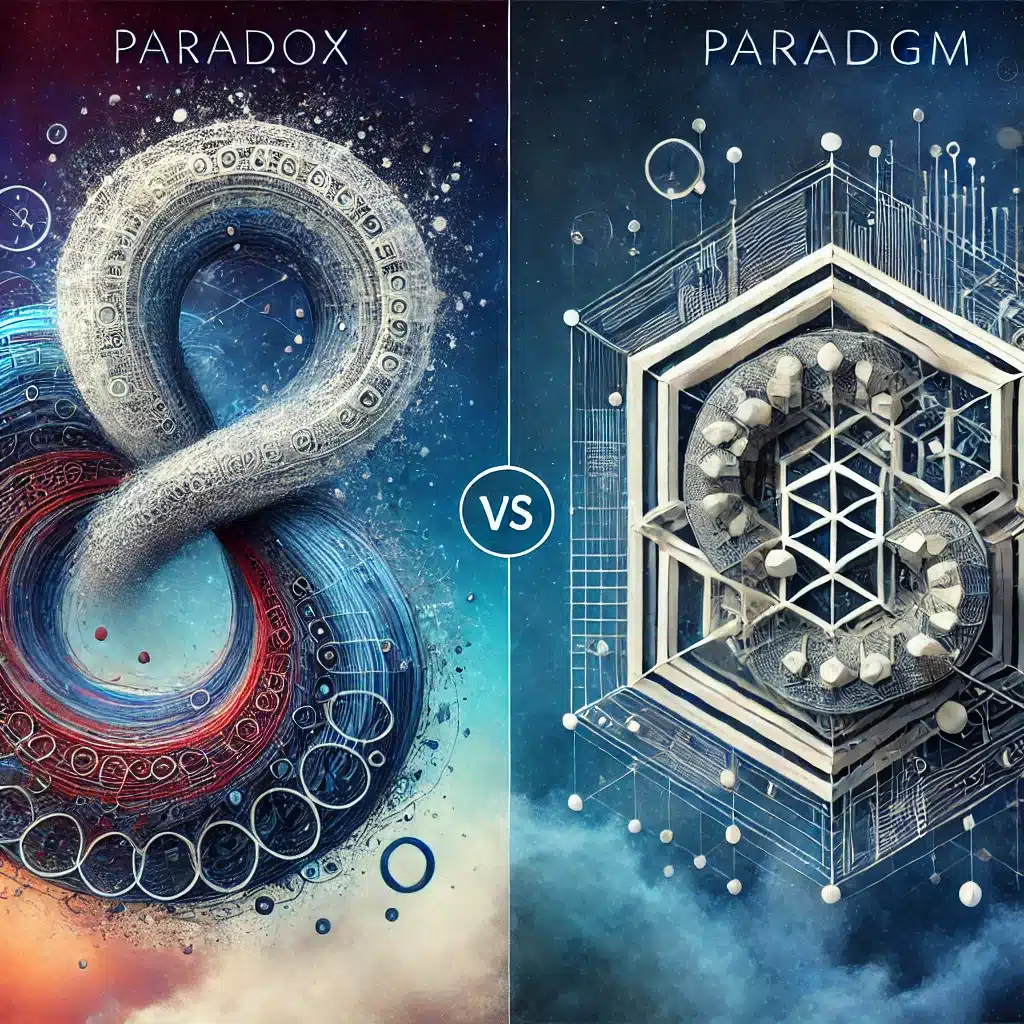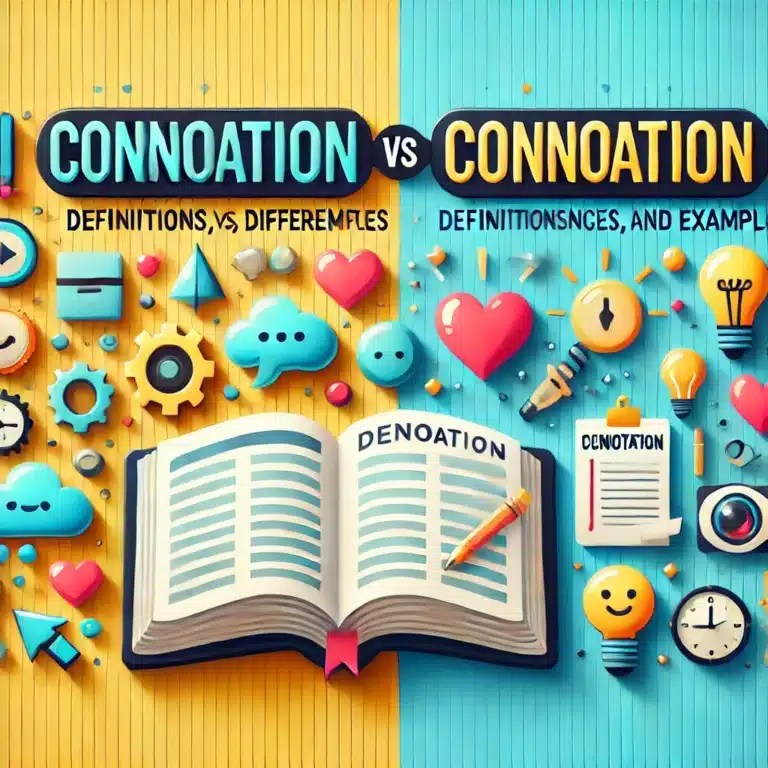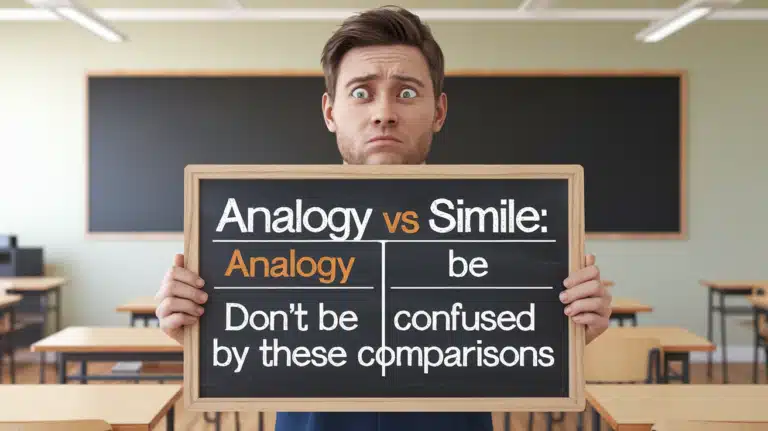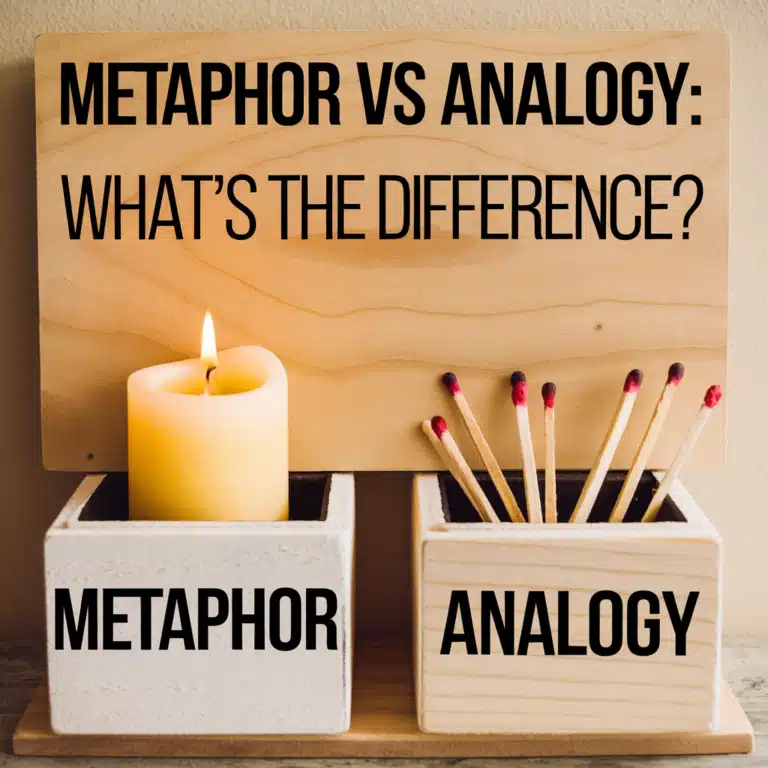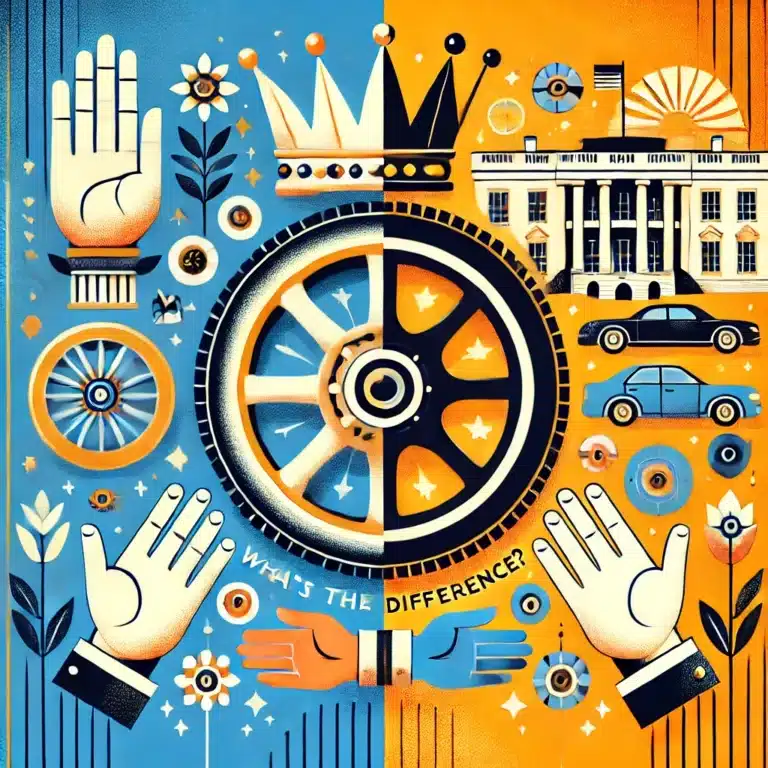Paradox vs Paradigm: What’s the Difference?
Paradox vs Paradigm are two distinct concepts often confused. A paradox is a self-contradictory statement that may reveal a hidden truth, while a paradigm serves as a model or framework that shapes beliefs and perceptions. Classic examples of paradox include the liar paradox and the grandfather paradox, which puzzle the mind.
On the other hand, paradigms like the health paradigm or the learning paradigm establish mental frameworks guiding thought. Understanding these differences helps prevent common mistakes in language, such as using the terms interchangeably. In the end, recognizing these concepts adds depth to our communication, highlighting the importance of context in language.
What is a Paradox?
A paradox is a statement or concept that seems contradictory but often reveals a truth upon closer examination. Paradoxes can challenge our logical frameworks, creating a mental conundrum that forces us to examine our assumptions. They’re often used in literature, philosophy, and even scientific theories to challenge accepted beliefs or add depth to an argument.
Types of Paradoxes
- Logical Paradoxes: Statements that contradict themselves. Example: “This statement is false.”
- Literary Paradoxes: Used to create depth in literature, like “It was the best of times, it was the worst of times.”
- Philosophical Paradoxes: Concepts that reveal deeper truths by presenting contradictions, such as the “Ship of Theseus.”
Examples of Paradox
Here are some classic paradoxes that illustrate the complexity and intrigue of these contradictory statements:
| Paradox Type | Description |
|---|---|
| Liar Paradox | “This statement is false.” |
| Barber Paradox | The barber shaves everyone who doesn’t shave themselves. Who shaves the barber? |
| Ship of Theseus | If all parts of a ship are replaced, is it still the same ship? |
| Bootstrap Paradox | In time travel, an object or piece of information that has no origin. |
| Grandfather Paradox | If you go back in time and prevent your grandfather from meeting your grandmother, would you exist? |
These examples show how paradoxes create brain teasers that challenge conventional thinking, often leaving us puzzled.
What is a Paradigm?
A paradigm is a model or pattern in a particular field that represents accepted beliefs, practices, and approaches. Paradigms shape mental frameworks and set standards for what is considered valid or true within a specific context, such as science, philosophy, or culture.
Read More About : Antithesis vs Juxtaposition: Mastering the Art of Contrast in Writing
Paradigm Shifts in Practice
Paradigms are not static; they evolve when a new model replaces an old one, often due to advancements in thought or technology. Such changes are called paradigm shifts. For instance, the shift from a geocentric model (Earth-centered universe) to a heliocentric one (Sun-centered) fundamentally altered our understanding of the cosmos.
Examples of Paradigm
| Paradigm Type | Description |
|---|---|
| Morning Routine Paradigm | Structure of activities that start the day. |
| Learning Paradigm | Models that shape educational systems and methods. |
| Teamwork Paradigm | Approaches to collaboration in groups or organizations. |
| Health Paradigm | Beliefs and practices in healthcare, like preventive care. |
| Success Paradigm | Accepted beliefs on what defines success. |
These paradigms influence our mental frameworks, shaping our assumptions and perceptions. A paradigm is thus a set of shared beliefs or assumptions, guiding how individuals or societies think and behave.
Origins and Development of Paradox and Paradigm
Understanding the origins of these terms provides insight into their usage and development.
Etymology and Historical Usage of “Paradox”
The word paradox comes from the Greek paradoxos, meaning “contrary to expectation.” Historically, paradoxes were used to provoke thought and highlight contradictory truths, especially in philosophical and literary contexts.
Etymology and Historical Usage of “Paradigm”
Paradigm originates from the Greek word paradeigma, meaning “pattern” or “example.” Over time, it became a fundamental term in fields like science and social studies to represent a dominant framework or model.
Key Differences Between Paradox and Paradigm
| Aspect | Paradox | Paradigm |
|---|---|---|
| Definition | A contradictory statement that may reveal truth. | A model or framework that shapes thinking. |
| Usage | Primarily used in philosophical and literary contexts. | Used widely in science, sociology, and psychology. |
| Example | “Less is more” – a common paradox. | The scientific method as a paradigm. |
| Purpose | Challenges beliefs, provokes thought. | Sets standards and guides practices. |
A paradox creates an intellectual puzzle, often defying straightforward logic, whereas a paradigm establishes a structured way of thinking. Both are essential, yet each serves a distinct function in shaping ideas and narratives.
Using “Paradox” and “Paradigm” Correctly in Sentences
Using “Paradox” in Sentences
- “The concept of a ‘necessary evil’ is a well-known paradox.”
- “His calm demeanor during a crisis presented a paradox.”
Using “Paradigm” in Sentences
- “The educational paradigm has shifted towards student-centered learning.”
- “She followed the traditional health paradigm that emphasizes prevention.”
Common Mistakes and How to Avoid Them
Understanding when to use paradox and paradigm can be challenging. Here are some common mistakes:
- Interchangeability: These terms are not interchangeable. A paradox contradicts itself, while a paradigm represents a model or standard.
- Overuse in Writing: Overusing either term can dilute their meaning, especially in technical or scientific writing.
Practical Tips for Mastering Paradox and Paradigm
When to Use “Paradox” Over “Paradigm”
- Use paradox to describe situations where conflicting statements hold an underlying truth.
- Use paradigm to describe a system of beliefs or methods that shape how things are approached.
Leveraging Both Concepts to Enrich Writing and Thought
Paradoxes and paradigms can be powerful tools in writing, providing depth and structure. Writers can use paradoxes to present complex ideas, while paradigms help frame thoughts within recognizable systems.
Summary of Differences: Paradox vs Paradigm
| Term | Definition | Usage |
|---|---|---|
| Paradox | A self-contradictory statement or situation. | Philosophical, literary, intellectual |
| Paradigm | A model or accepted way of thinking. | Scientific, cultural, social contexts |
The above table summarizes the distinctions between paradox and paradigm, helping clarify when each term applies.
Conclusion
In understanding paradox vs paradigm, we see two concepts that play unique roles in shaping our thoughts. A paradox challenges logic, often revealing hidden truths through contradictions. Meanwhile, a paradigm provides a structured model, shaping beliefs and mental frameworks that guide thinking and behavior. Recognizing the difference helps avoid common mistakes, like using these terms interchangeably, and enhances our communication. By mastering the use of both, we add depth and clarity to our language, making our ideas more powerful and impactful in the right context.

